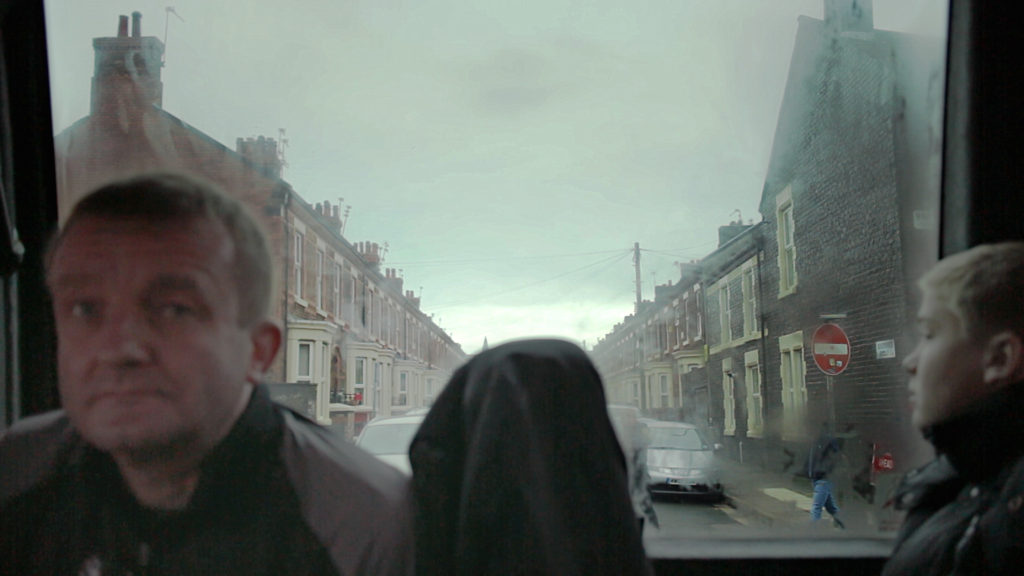Tragedy segues into gentrification in ‘This Means More’, a sobering reflection on the effects of 1989s Hillsborough Disaster
The Winner of Short Waves International Competition

In and of itself, the Hillsborough disaster which occurred in the UK in 1989 was a terrible tragedy. 96 football fans where crushed to death when too many were allowed into a stadium which penned them in and gave them no hope to escape. Yet, aside from the tragic and needless loss of life, Hillsborough was also a stark reminder of the British obsession with class and a power elite all too ready to demonise the working class. With the police feeding the UK press stories of Liverpool fans of being drunk and disorderly (all of which were untrue) and said press all too willing to print them, the disaster became synonymous with the rife inequalities in the country. In the UK the echoes of the disaster are still keenly felt, not only in respect for the lives lost but also in the quest for justice for these lives (which have had some glimmers of hope over the past few years due to re-opened inquests) and how it shines a light on the country’s social divisions.
While the disaster has been the subject of countless dissections over numerous media during the past few decades, Nicolas Gouralt’s This Means More is an important and affecting documentary that manages to shine a light on the socio-economic impact of Hillsborough whilst still maintaining a humanistic edge.
Beginning with archival, black and white footage of a football crowd, we segue into a discussion from a designer explaining how he can design a virtual stadium with virtual fans included, all complete with images of the possible computer generated crowd. These opening moments are already striking – the nostalgia and humanity of the archive footage contrasted with the clinical technicality of the computer world.

Soon the film has a discussion from a Liverpool fan discussing the Kop (the legendary Liverpool stand, located behind the goal) and the layout of the stadium as well as discussions about the crowd dynamics and reminisces about past games. This voice over is accompanied by blueprints and technical recreations of the Kop as, again, both nostalgia and technology clash in these moments.
As the film begins to explore the Hillsborough disaster itself, it refrains going deeply into the events of the fateful day instead going for a – still tragic and heartrending – account of the events that led up to the 96 deaths. But the discussion also leads into the aftermath – not only about the scapegoating of the fans but also into how stadiums were changed. While ostensibly this would seem to be a good thing – with stadiums becoming all seated and no ‘standing only’ places – it’s also pointed out how the standing room only stands were the affordable gathering points for working class fans. These fans were slowly priced out – as well as the game being bought up by Sky TV in the UK and moved away from free television – and many working class fans became disenfranchised from a game which, for many, was a crucial element to their lives. The virtual, computer generated crowd become a sign of hegemony, of conformity, of whitewashing an entire section of society. A mention of the new seating arrangements comes with footage of the seats being created by robots in a factory. Another job in which humanity has been replaced.
The film ends on a bittersweet note. As the camera sits on a bus of fans heading towards a game – a welcome slice of humanity – a fan notes that football is in their blood and that they will continue to go to the games no matter what. There is a certain triumphalism in this stoic attitude. Yet the film’s title is revealed to be an advertising slogan, an example of the game being hijacked and manipulated into commodifying the experiences of the working class.
While the film would certainly have more resonance with a UK audience, familiar with the intense feelings that Hillsborough still conjures up, This Means More’s recent win of first prize in the International Competition at this year’s edition of Short Waves (as well as Best Student Short at this year’s edition of Go Short) shows how it’s message still has an impact on international viewers. It’s reflection on how passion is quickly turned into industry is both heartfelt and sobering.
Country: France
Language: English
Runtime: 14 mins
Documentary
Director: Nicolas Gouralt
Line Producer: François Bonenfant
Cinematographer: Alan Guichaoua
Editor: Félix Rehm
Cast: Peter Carney, Richie Greaves, Damian Kavanagh, Peter Hooton, Ian Lewis, Nicholas Masterton
















